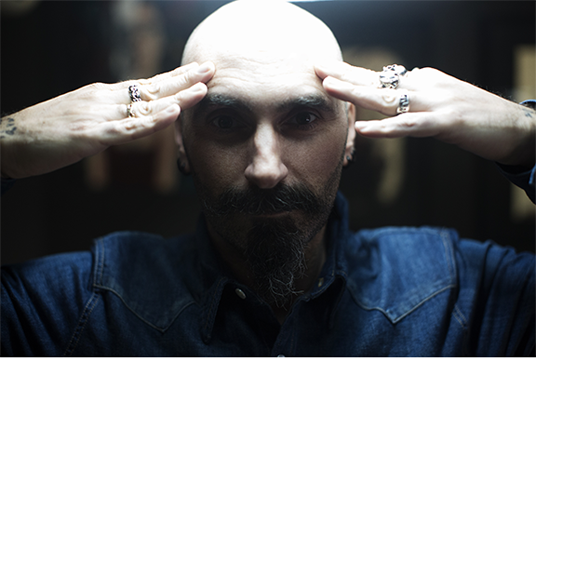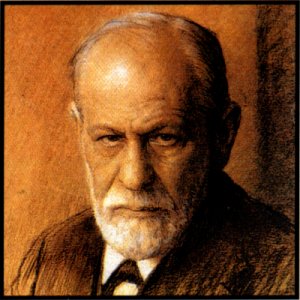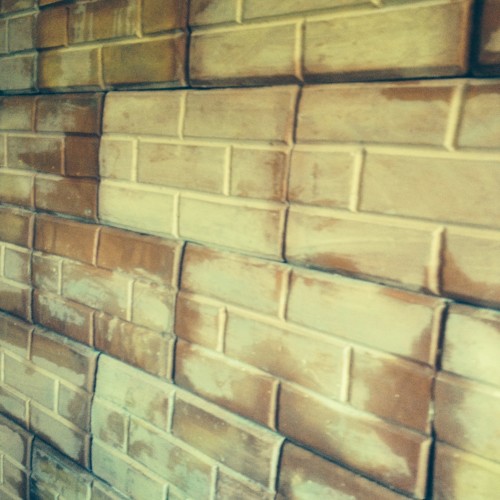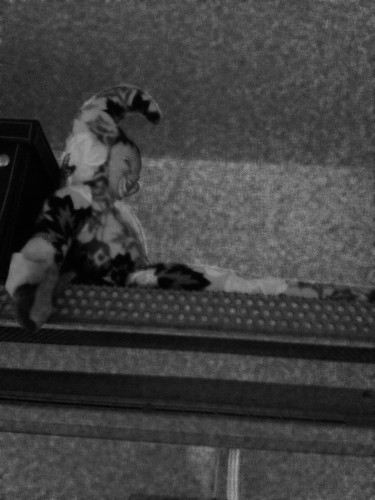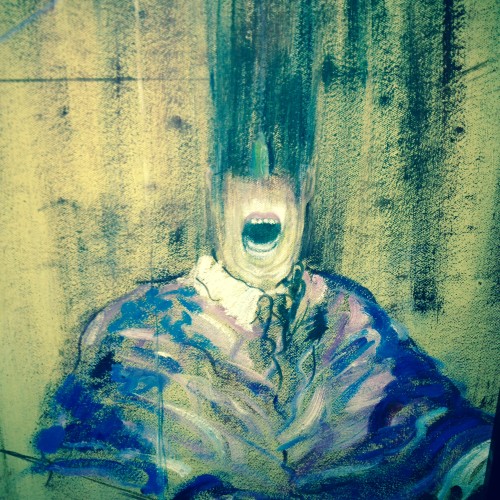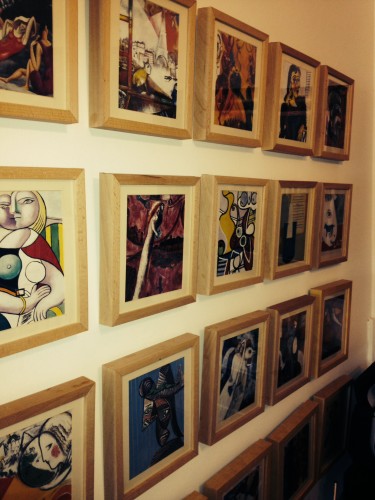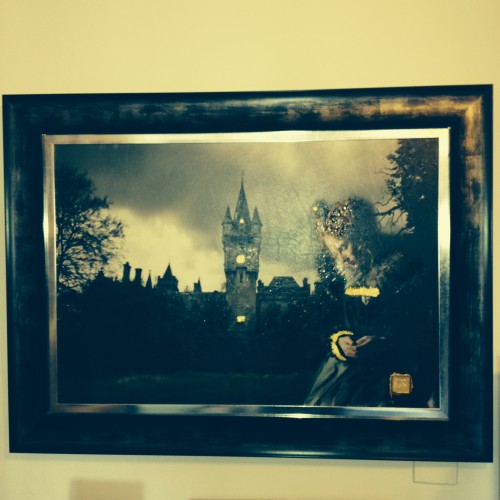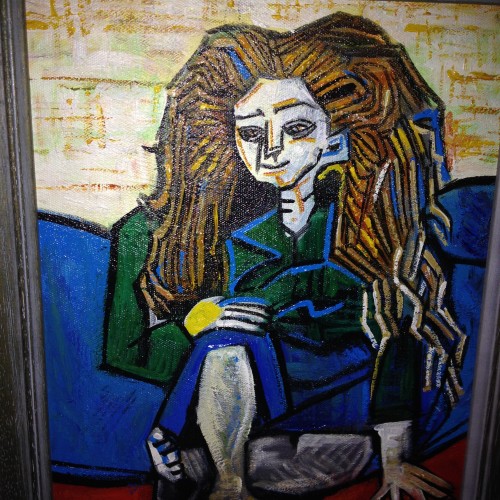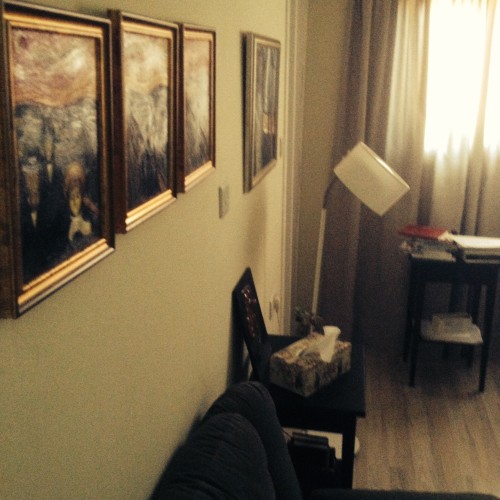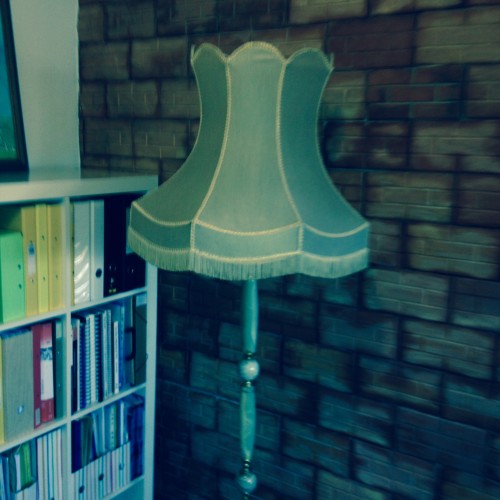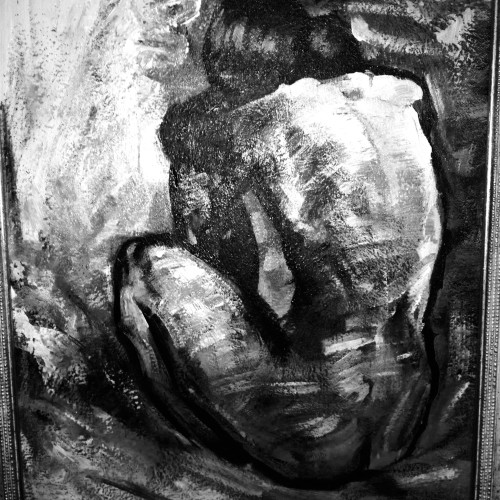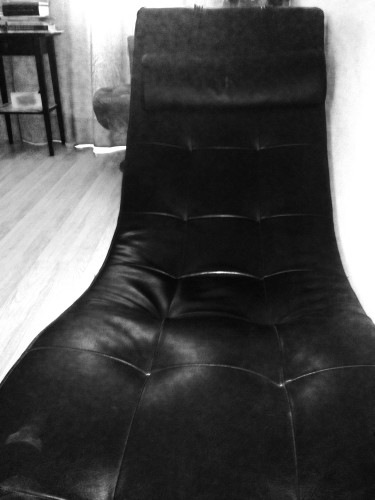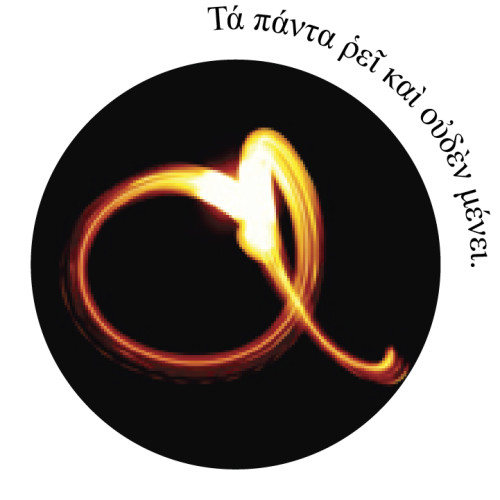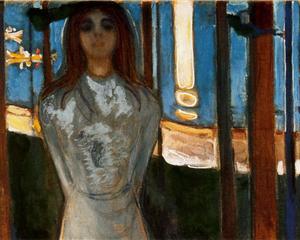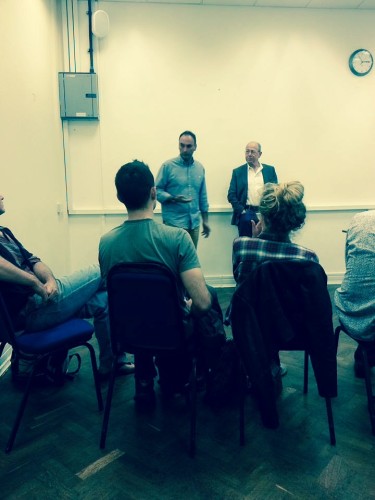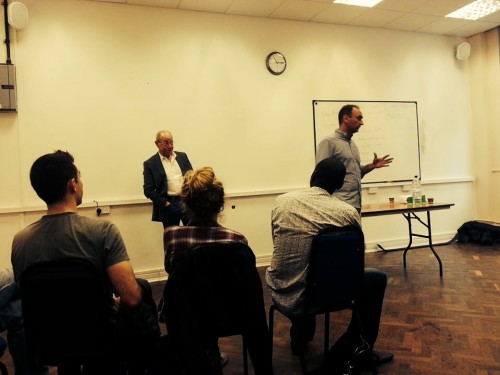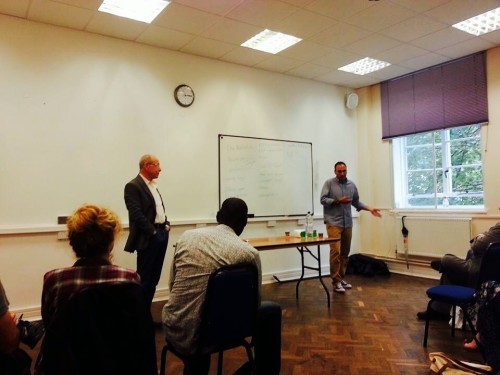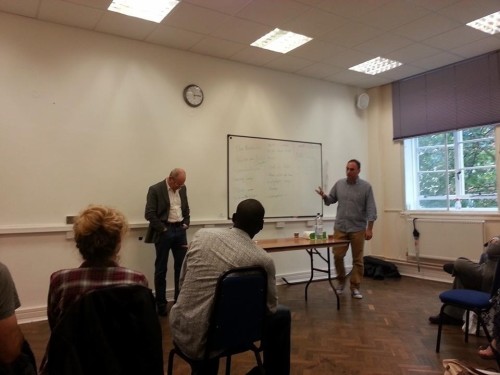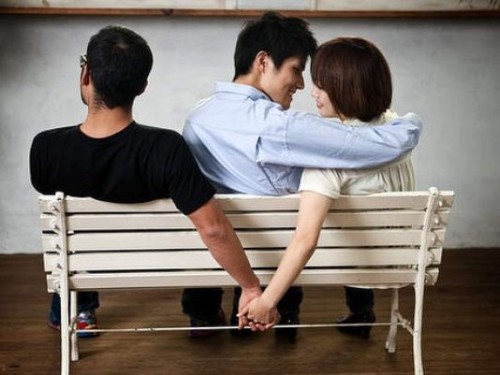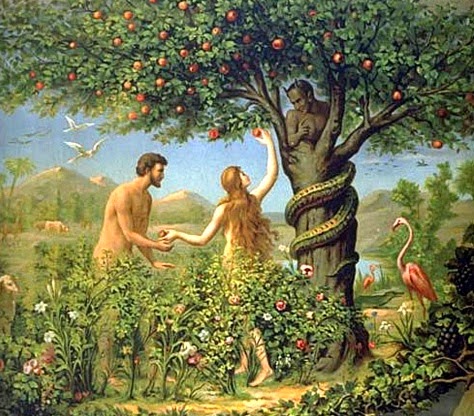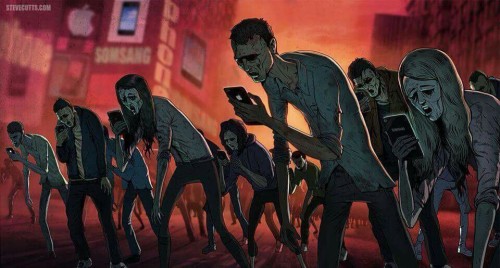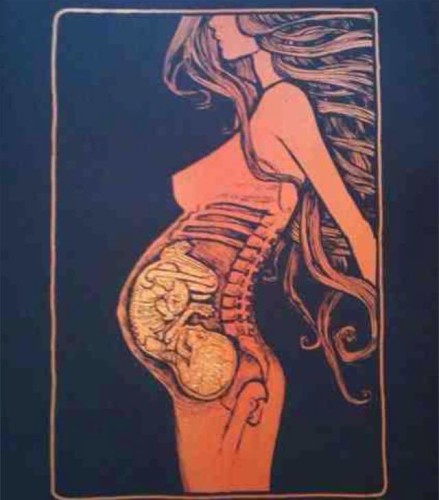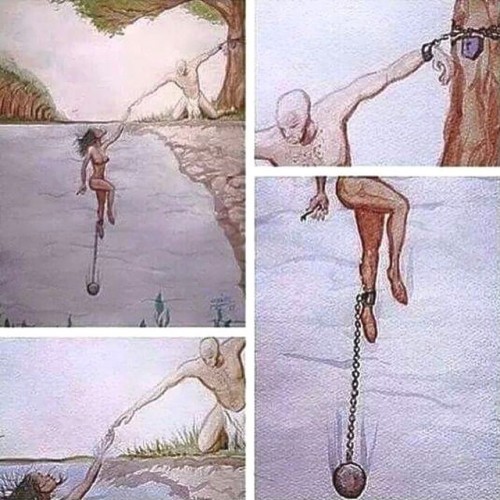It took him a few decades to reach to an agreement with what he was seeing and what he was listening- these were messages from another dimension, elements of perception and reception, not illusions or delusions, for he was aware of them, at least later in life; in the beginning, as a boy he was fainting against what he was experiencing and the doctors said that he might have not eaten well in the morning, perhaps a poor diet, or that he might have had myopic eyes, however, the bodily organs were healthy, more healthy than what you might have expected under these circumstances and anxieties of this realm of a boy’s life. And so the parents have tried magic, these elementary exorcisms with water and basil leafs and the witch uttering “Now your fears are gone,” yet she had never said where, or that they have rehearsed their habitat in his body, in his body until they wake up again, as if his flesh was a fragile tombstone for his destiny because of what one should christen as some sort of evil chewing on his desire; and, without his knowledge, the boy’s knowledge, at least as they say consciously, he had tried throughout his life to obstruct their roaring, to act as normal people do as if his eyes were blind and his ears deaf, in linearity and within a dimensionality that is imaginary, on the level of normality- normality and healthiness, the bread and butter of those people who do not accept the responsibility of utilizing their gift’s endowment: suffering, too much suffering to cross the threshold for such people, when they situate the human body in the registers of time, logic and of that Other who is observing and looking, of what manure remaining, but never transubstantiates into fertilizer, from language and thus receives the carcass of the critic, who is dead but does not acknowledge it, for he assumes that, been the king of the underworld, is a beautiful life: what a polite lie- let us subtract the “F” and create a hyperbole for the human existence.
The wolf was forever and a day, according to the immemorial expression, staring at him, as the crow flies in the eyes; sometimes it was revealing its violent actions setting the boy at the agonizing rest of a witness’ muteness and ordering him “Do not speak for what you see,”- and he, the boy, when he was actually a boy, has never dazzled back to what has been excogitated from the void of the abyss and has kept himself unvoiced: unvoiced because, truth be told, who could have receive and summon such an ecclesiastical discourse, to listen to he who listens the voices of the world and the roars of the domain of shadows? Who would dare to estimate the berth of a new Lazarus to communicate with the boy and to exchange the values and jokes of life and death? “Speak,” they could have said to him if only they would have ever confined some centimeters within the topology of faith, “Speak for the things of the earth and of Hades,” but how could one even dare to ask from a young boy to ascent his head upwards and leer back to this menacing seething creature, this embodiment of malevolence with the dark immaculate eyes? And that mouth, dripping the saliva of an illness, of the divine anguish– that is why the boy was throwing his glances downwards whilst walking, to hide, to hide not as a part of an obsessional’s ceremony of been the object of the gaze’s drumming, defeated in a private space to control the omniscient coercion of that which sees it all: it was not an issue of been hidden but of hiding it, that inhuman It, and to deal with this Real, which was reality for him, hearkening constantly to these ever known words of adults who have never been children, “Stand up straight; you will become like the celebrated Hunchback of Notre Dame:” they knew half of the story’s plot, and they have been relentlessly forgetting that the notable hatchback has had a heart of gold and was time-honored by the love of the most beautiful, of she who represents destiny in a man’s orientation. The wolf did not retain the colors of a visage, mysterious and anonymous like those oedipal dreams- it did not obtain a face until later in the boy’s life, until, let us say, when he was already a man, a man of honor, a macho with the original meaning of the word who has been that man protecting his family by all means; and, when he cultivated his being and matured into a man, through this perplexing one by one metamorphosis of a masculine subject’s Ousia, the anxiety educing from that blemish of sightlessness veiling the beast’s face became even stronger, until the immense gloominess of the beast was determined, precisely because the, now young man, has been ranging himself away from the evil’s attempt of labeling: it disclosed its face. It was there, all along his life, talking to him, as much as what we call a guardian angel in a white and pure form, a form as the fairy tales have it- and which, as Bruno Bettelheim could have said, obscure and state at the same time the child’s truth- an angel with another voice supporting his position, not to be accumulated by this half-human and half-beast: to be alone is impossible, but there are exceptions; such kindness of a language has been avowed by great philosophers: Aristotle said that there are two kind of beasts that live alone- animals and gods, to where Nietzsche added another kind, the philosopher. Both great minds have been wrong, because there is another, a more atypical type, both divine and demonic who is the honorable sufferer of his own Ethic of the Real, he who resists the call of that same wolf mentioned earlier.
And the boy has been reciting a prayer since his childhood, one that has been sometimes forgotten in the path of his life, and the same one that has received his faith once again, and has been altered as much as the anxiety and the revelations of the wolf because, even the prayers’ forms and mannerisms ought to transform their conducts according to the evil’s attendance: it was the prayer who made him a man, that is, to accept to deal with the difficulties of the path he has chosen, one path for one man, which none else can follow because it is made to measure; one body, one desire, one path, one price, one destiny- too much for any other proverbial someone, who does not own any access to the dimensions of shadows, to recognize. And the story goes further, not much will be said, not out of fear, but because those belongings of shadows ought to be kept discreetly in their place, in their valuable graves, not much to be articulated through ink and paper, not more than what a human ear can acoustically receive: and thus the boy has become an ascetic of life, a man with a direction of his choice, not in the form and meaning people might find in the dictionaries’ etymological physiographies, or, to these infamous paragraphs supposedly including and explaining words, words without the subject’s context- he has become ascetic for the service of a cause, one to support what he nominated, baptized in other words, and this included the dedication of his body, through his own suffering, as the cause of freedom and kindness. It has not been a religion to him- he denied the position of the master, for, free speech, cannot be directed to the earlobes of the master who enjoys the vernacular elocution of the mirror, unless there is a hysteric discourse who wants to establish more than anything, a new master, so to enjoy the war itself without the revealed truth been embodied with the subject of the Act- that which has been entitled elsewhere, but not too far, as an ΈργΟν.
And it took the young man a dream to see the face of the wolf and yet he has been able to look at him, this time, to look at him straight in the eyes without fear, to look back and not with the loom by which the abyss gazes back in the shape of the return of the repressed, but in a form inimitable and irregular to the eyes and sensitivities of those who have not seen the hand holding the key of Solomon opening doors with an ease; it had to gaze back to support his ethic and because it was the alleyway he had to stride through, that infamous passing of the threshold, to win the attendance of the fairy of destiny, who have been holding for him the golden throne from where a man stares and deciphers the mysteries of the domain of shadows, responds to them, now devoted and cherished, and mark, at this moment that he acts, by what has been aligned as the calligraphy of random kindness and senseless acts of beauty, the body of the subject, not as signifiers, but as the Letters of Love: and those who have the knowledge of good and evil are responsible to choose their own stigmata. Amen.
